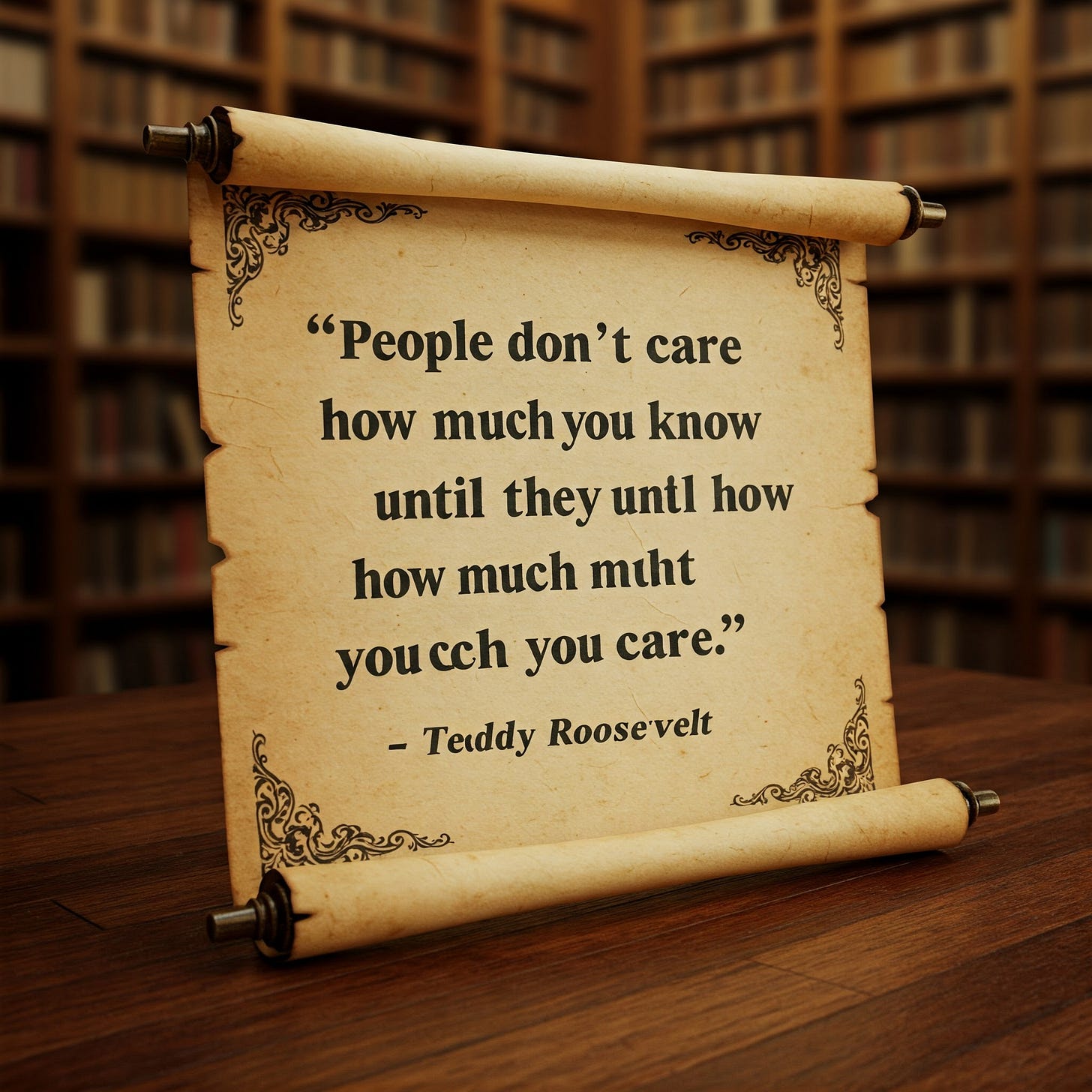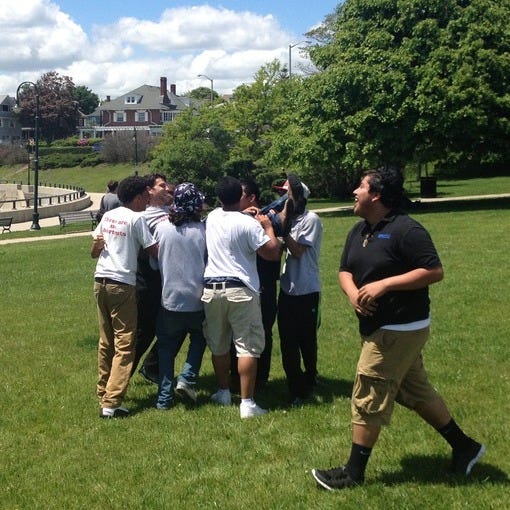Why teaching is great preparation for almost anything
None of this "those who can't do, teach" nonsense
If you can read this, thank a teacher
I was not a very good teacher. Neither am I great at what I do today. But I’m sure I would be less good if I hadn’t spend a few years teaching.
Here are four reasons I think teaching is great preparation for almost any career or personal travails.
1) Confusion, or defiance?
I remember one lesson that goes far beyond teaching: “When a student misbehaves, find out whether they don’t understand what to do or whether they understand what to do but are defying.” This is like a kinder version of Hanlon’s razor, replacing “stupidity” with “confusion”.
Students (people) want to do the right thing. They want to succeed. They don’t want to struggle with math problems or historical events. But given the choice, it’s understandable to appear unruly rather than foolish.
Every behavior is an expression of some need, whether it is a student tearing up their test, a work colleague stonewalling a project, or a child melting down in a supermarket. I find that searching for that underlying need often makes me calmer and more solutions-oriented. Not that I do it 100% of the time.

2) Anticipate misconceptions
When planning a lesson, teachers anticipate where students might make mistakes. They script in checks for that (mis)understanding, ideally with a quick question that students answer independently and that the teacher can check and adjust course as needed). As Mike Tyson said, “Everyone has a plan until they get punched in the mouth.” He might as well have been talking about lesson planning.
This applies equally well when preparing PowerPoint presentations, for example. I ask, “where will I lose the audience?” when editing. It is hard to correct perceptions or address mistakes when we get caught flat-footed. Instead, knowing where the road gets bumpy allows everyone to proceed with care.
3) Feedback is a gift
I have never witnessed a perfect lesson. And I’ve certainly never taught one. With a full classroom of students, there are so many variables that prevent us from approaching perfection.
I flailed so much as a new teacher that I was grateful to be told the things I did wrong. At least that way I had some clarity about what to try next time. It was like I had impostor syndrome, except that it was very much true that I had no idea what I was doing.
Rewiring my brain to appreciate constructive feedback has helped me react less emotionally in tense situations, and it makes it easier to give feedback when I’m called to do so.
4) Minimum viable intervention
If you can redirect behavior with a pointed look, do that first.
If that doesn’t work, move closer and show you’re paying attention.
If that doesn’t work, have a subtle, private conversation.
No one likes to be called out in front of their peers. Whether it’s your own children or colleagues derailing meetings, the least invasive solution might solve the problem as well and preserve (or strengthen) the relationship.

Saved by the bell
I started teaching kids when I was basically a kid myself. Looking back, it’s wild to think people gave me a classroom to manage. I hope I did some good. But it’s probably for the best that I’m not in the classroom every day.
Still, I’m very grateful for the experience and the lessons it taught me. If someday our kids want to teach, I’ll wholeheartedly encourage them to do so. (I hope that says something given the discussions about education today.) They might have goals of making a big impact. I think most of us young idealists who become teachers do.
But it doesn’t matter if they make a big impact. If they decide to (no pressure), teaching will make a big impact on them. And that’s plenty.


